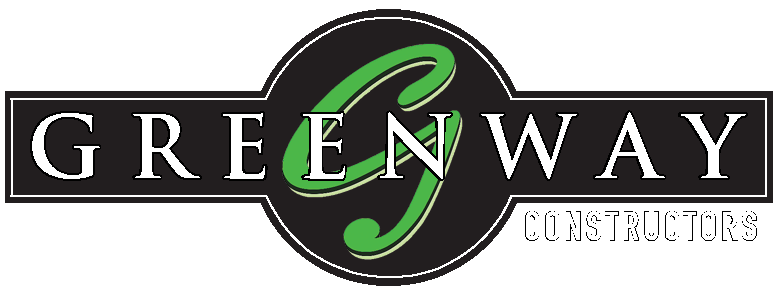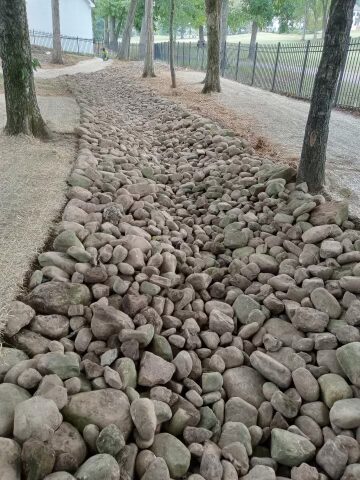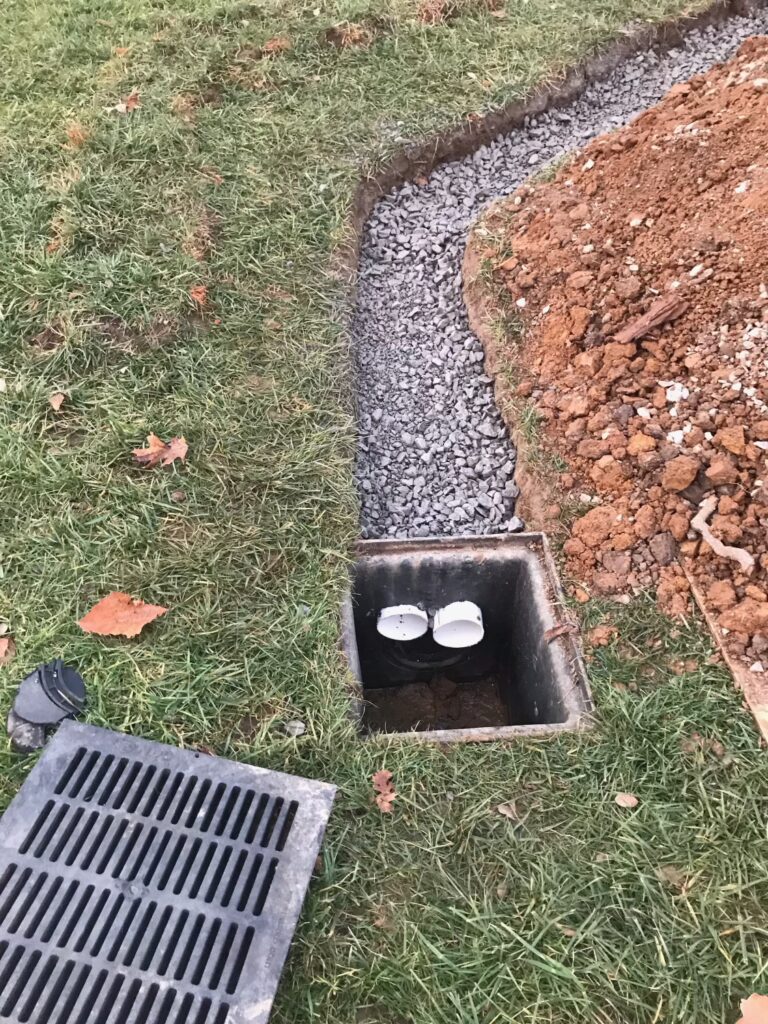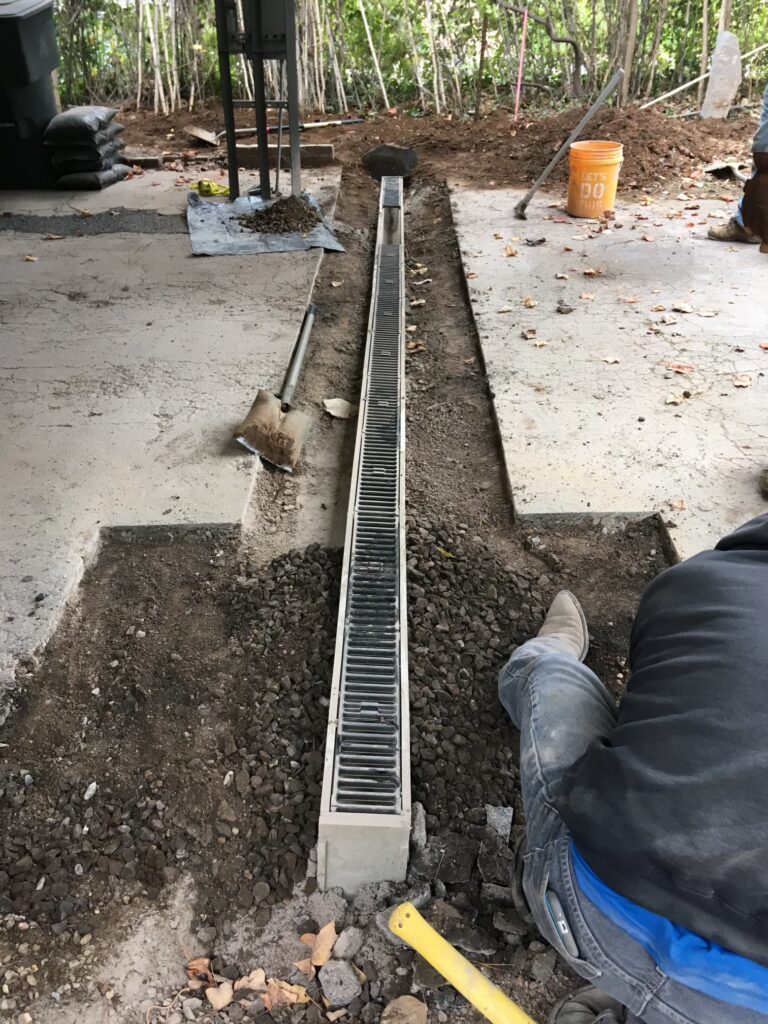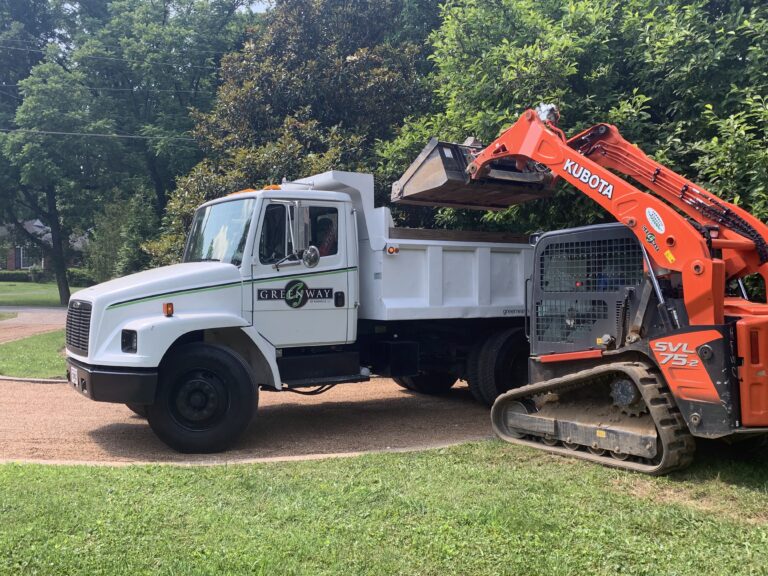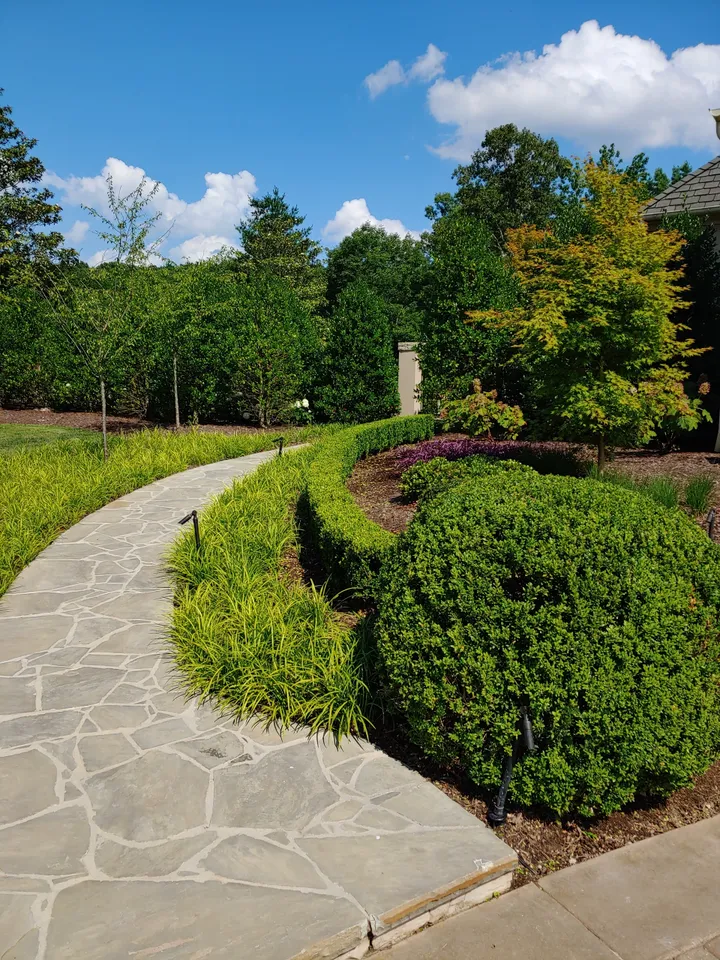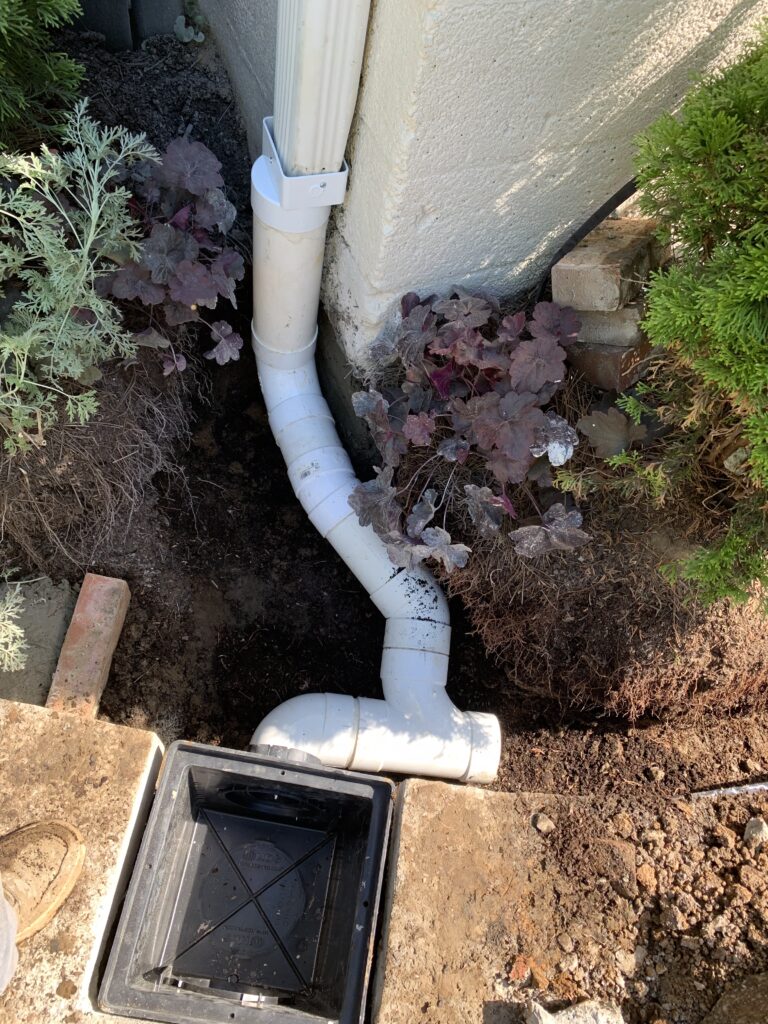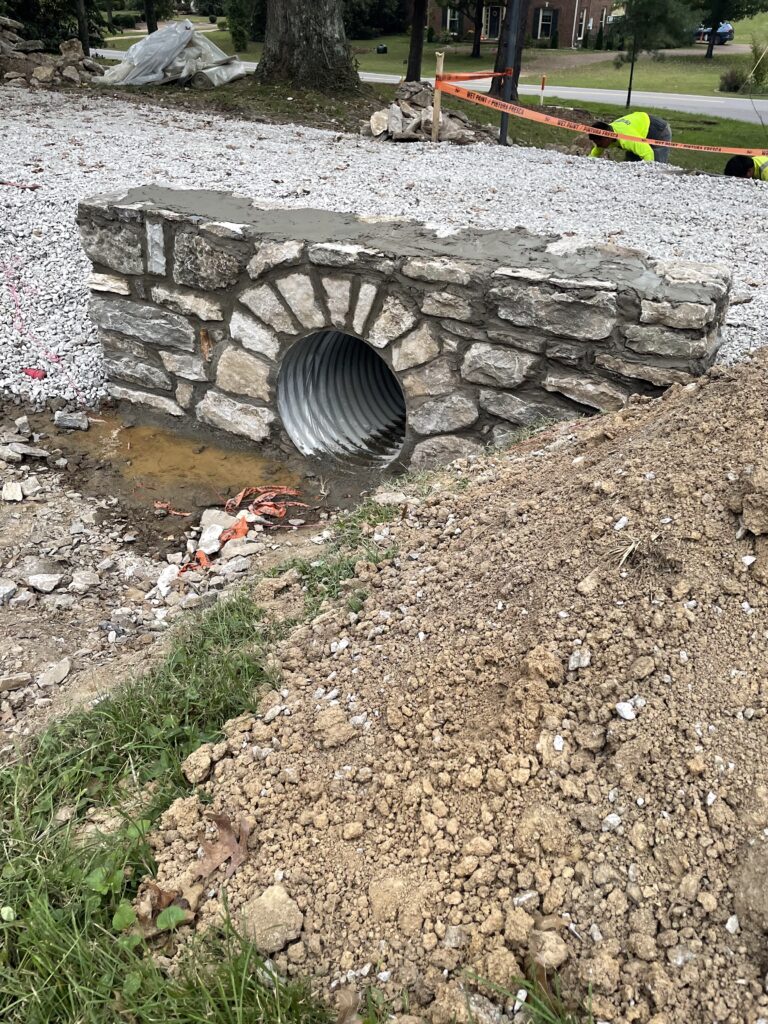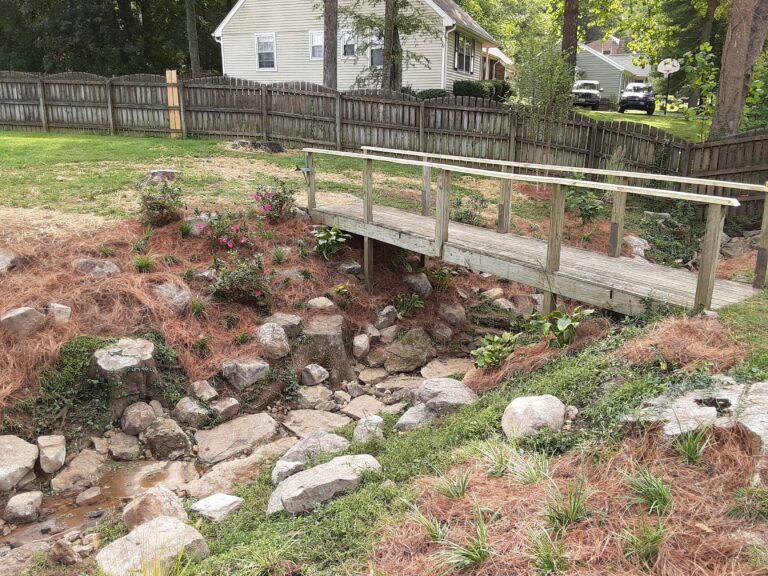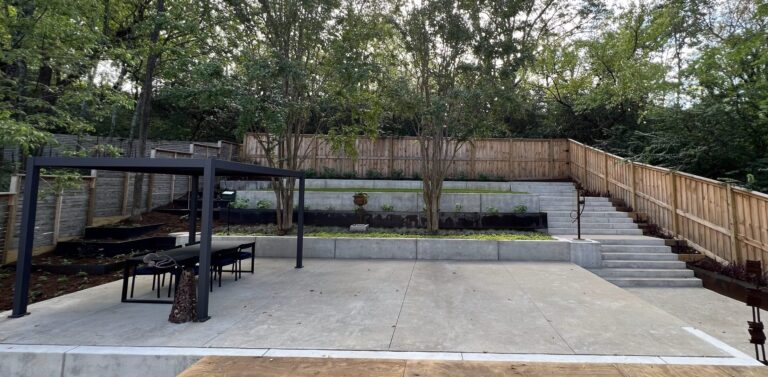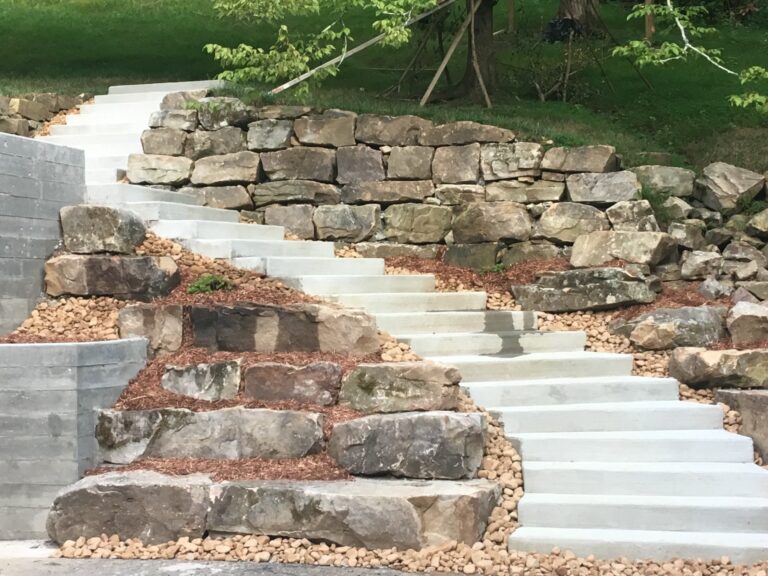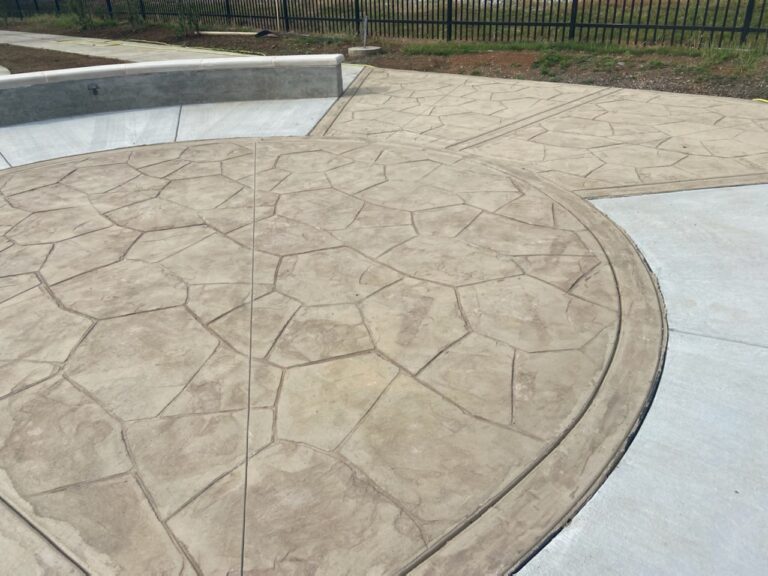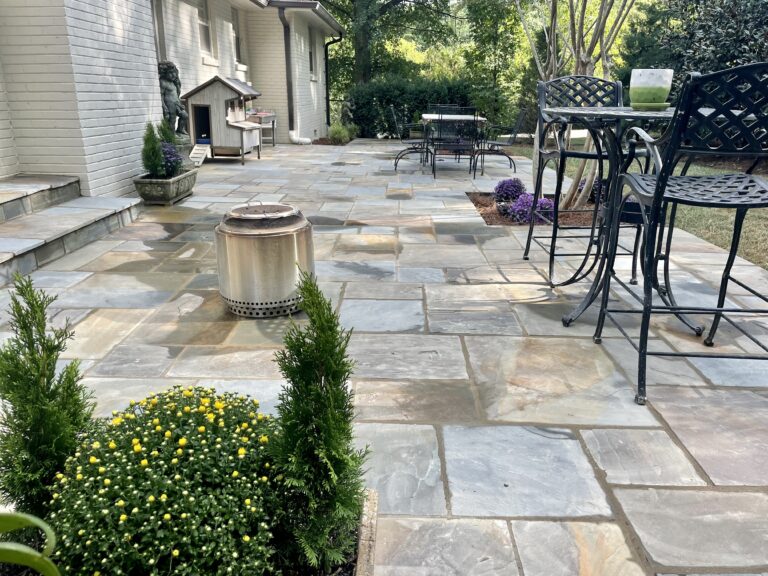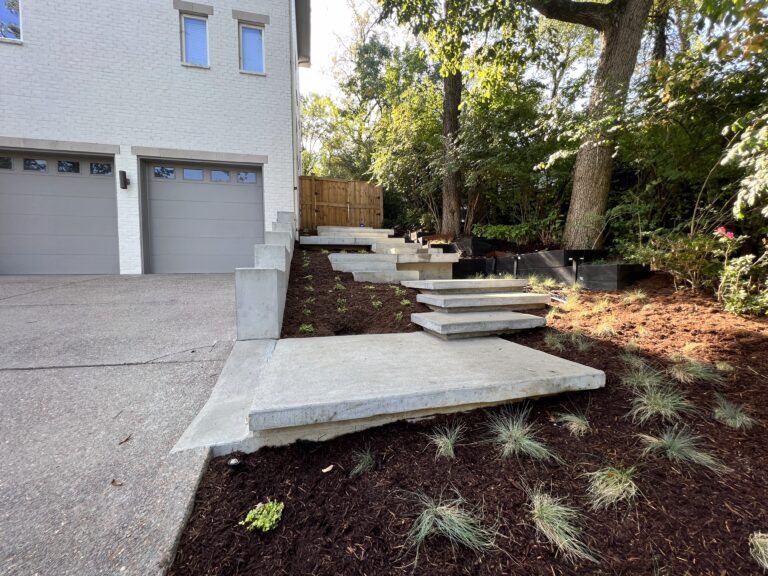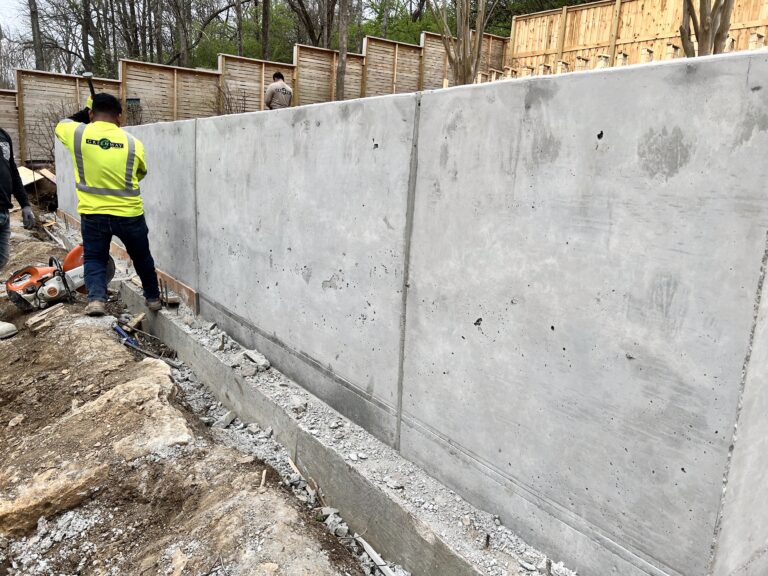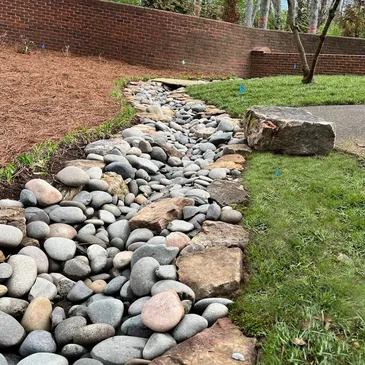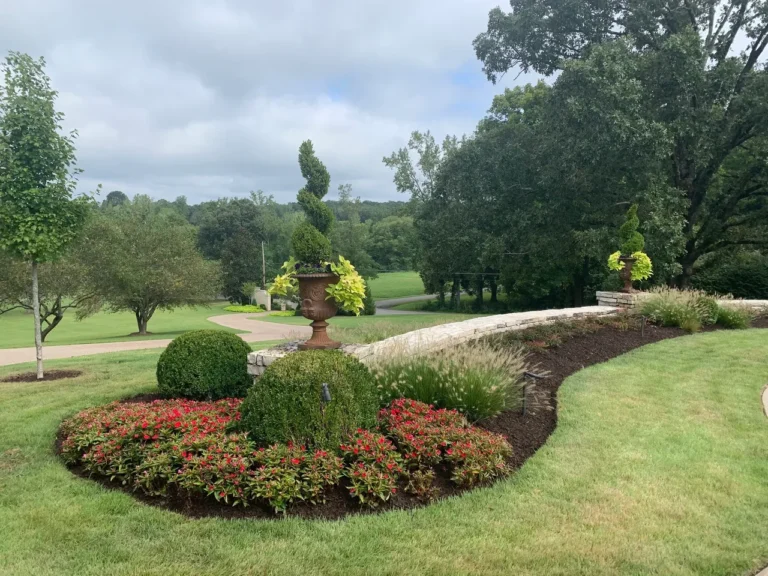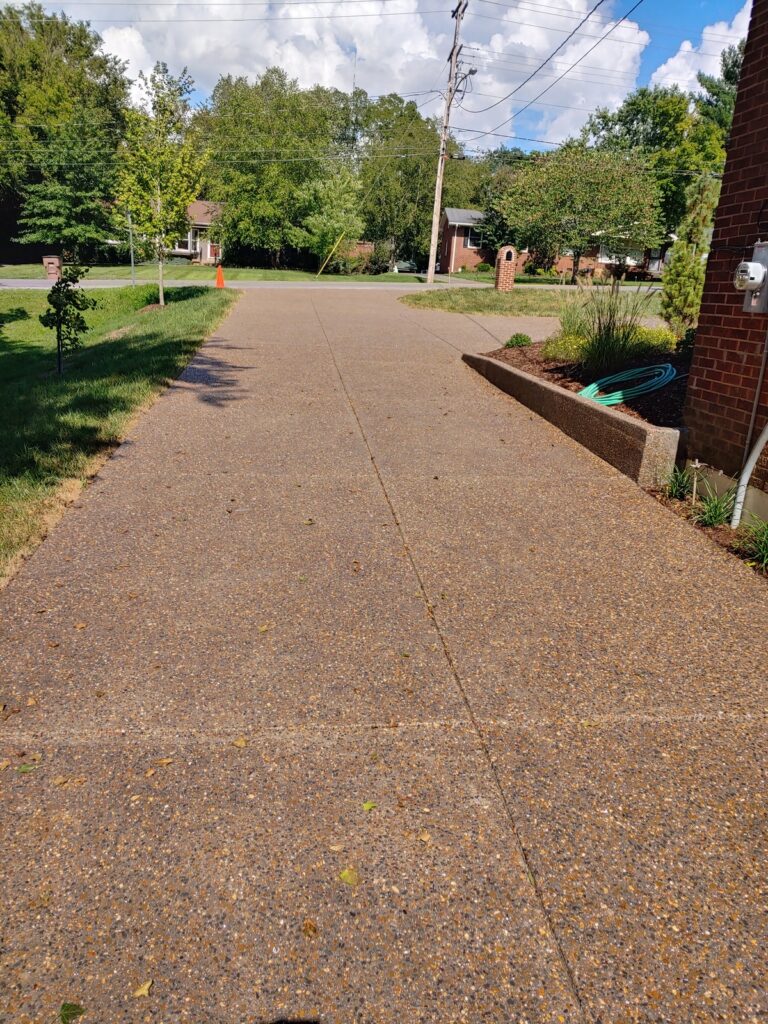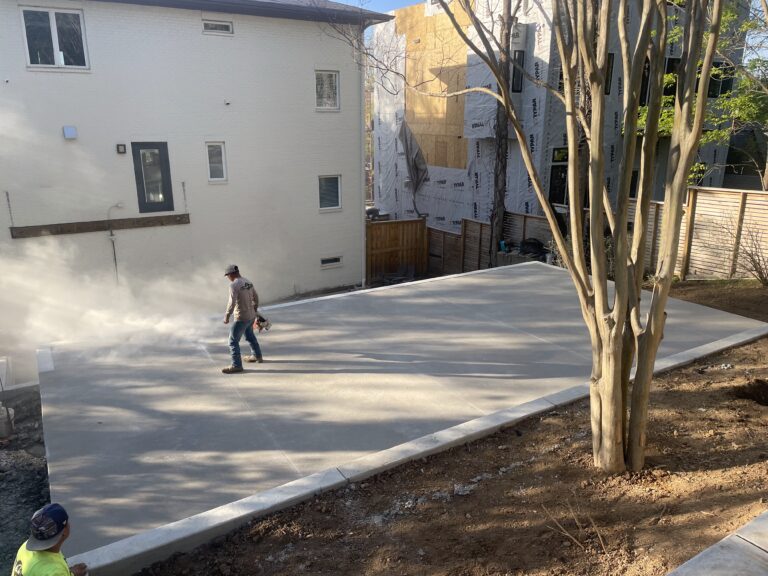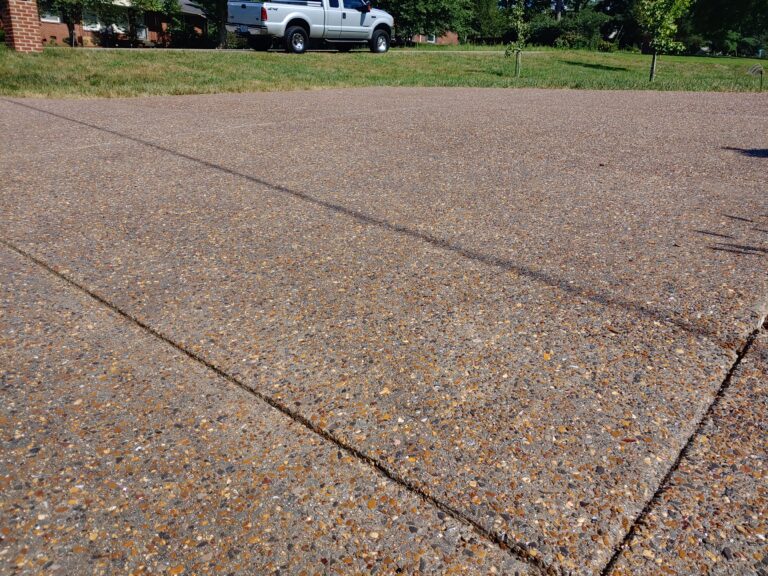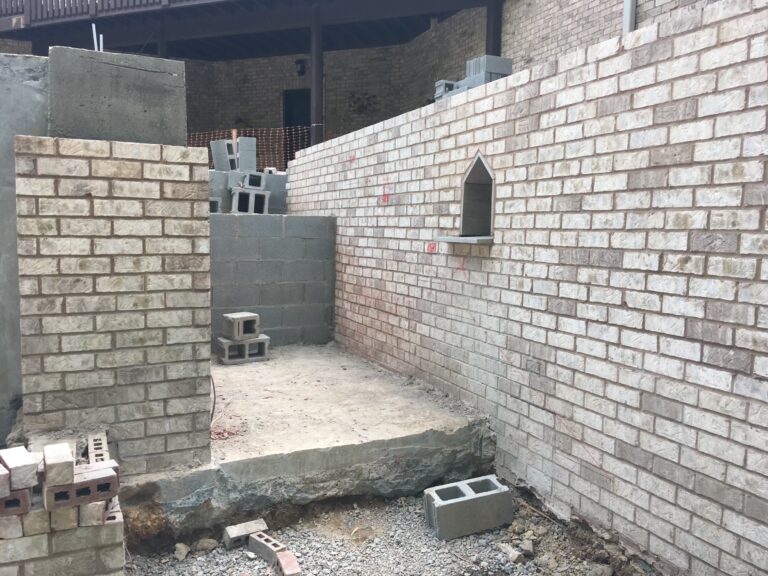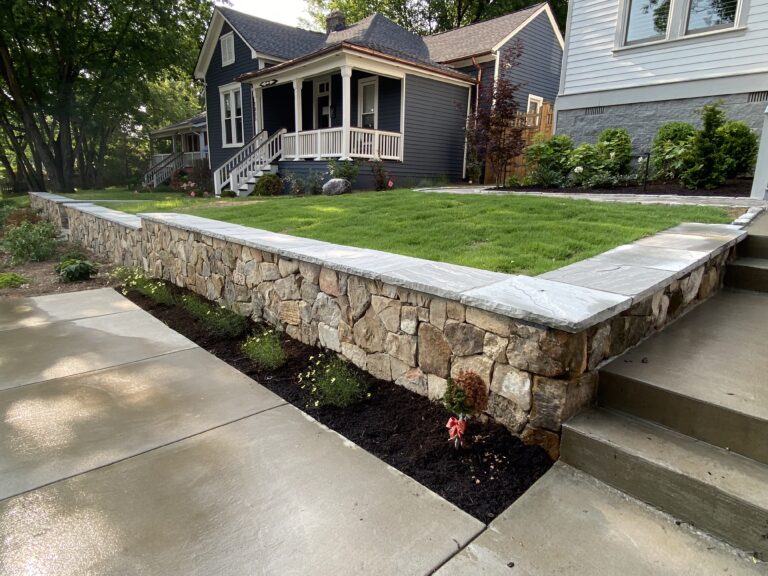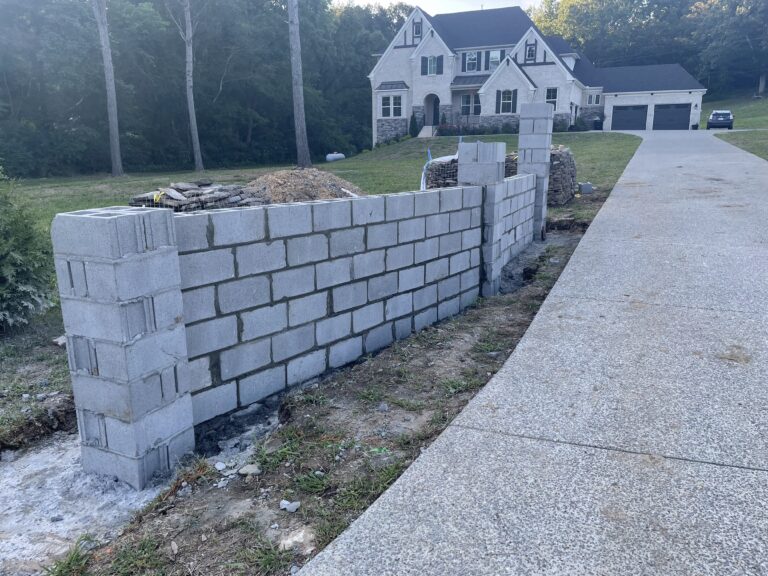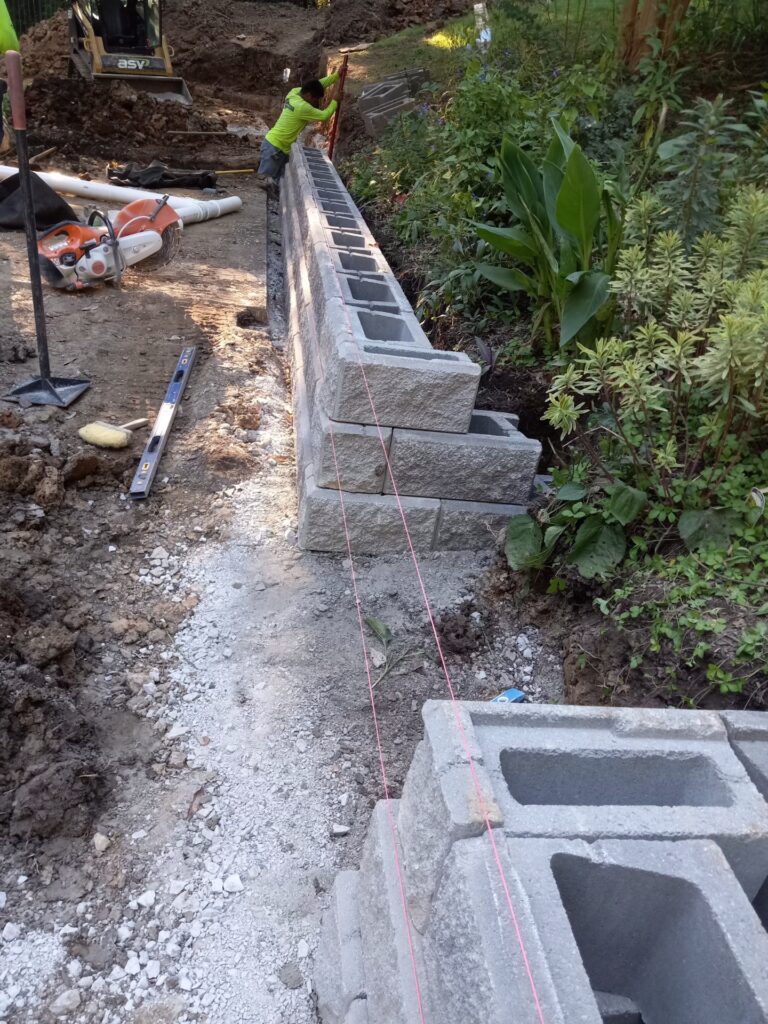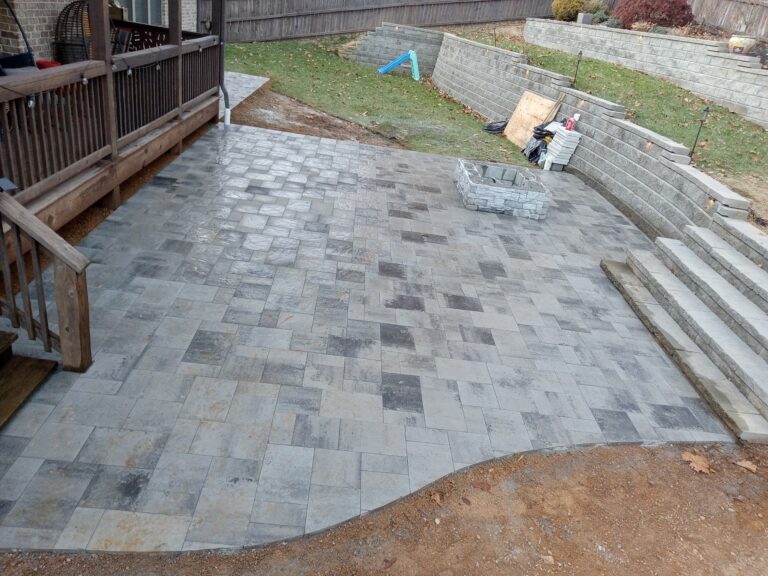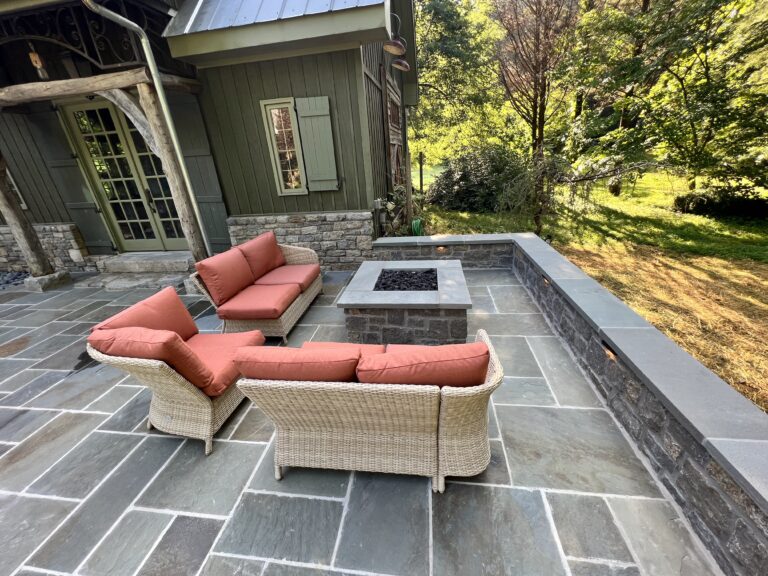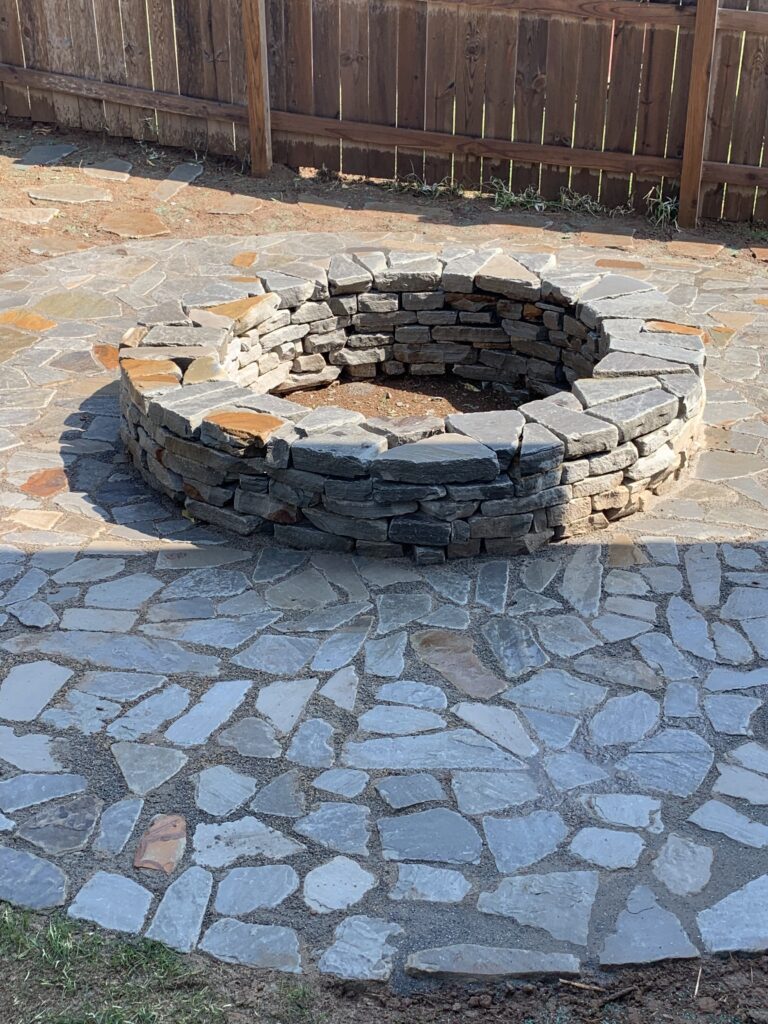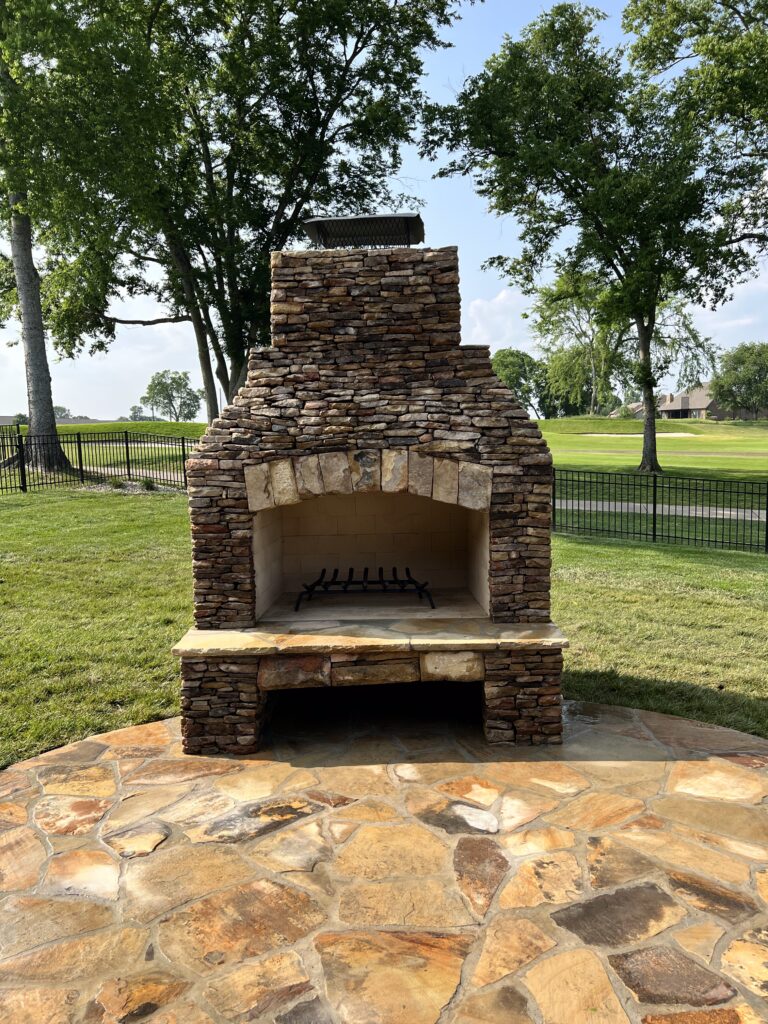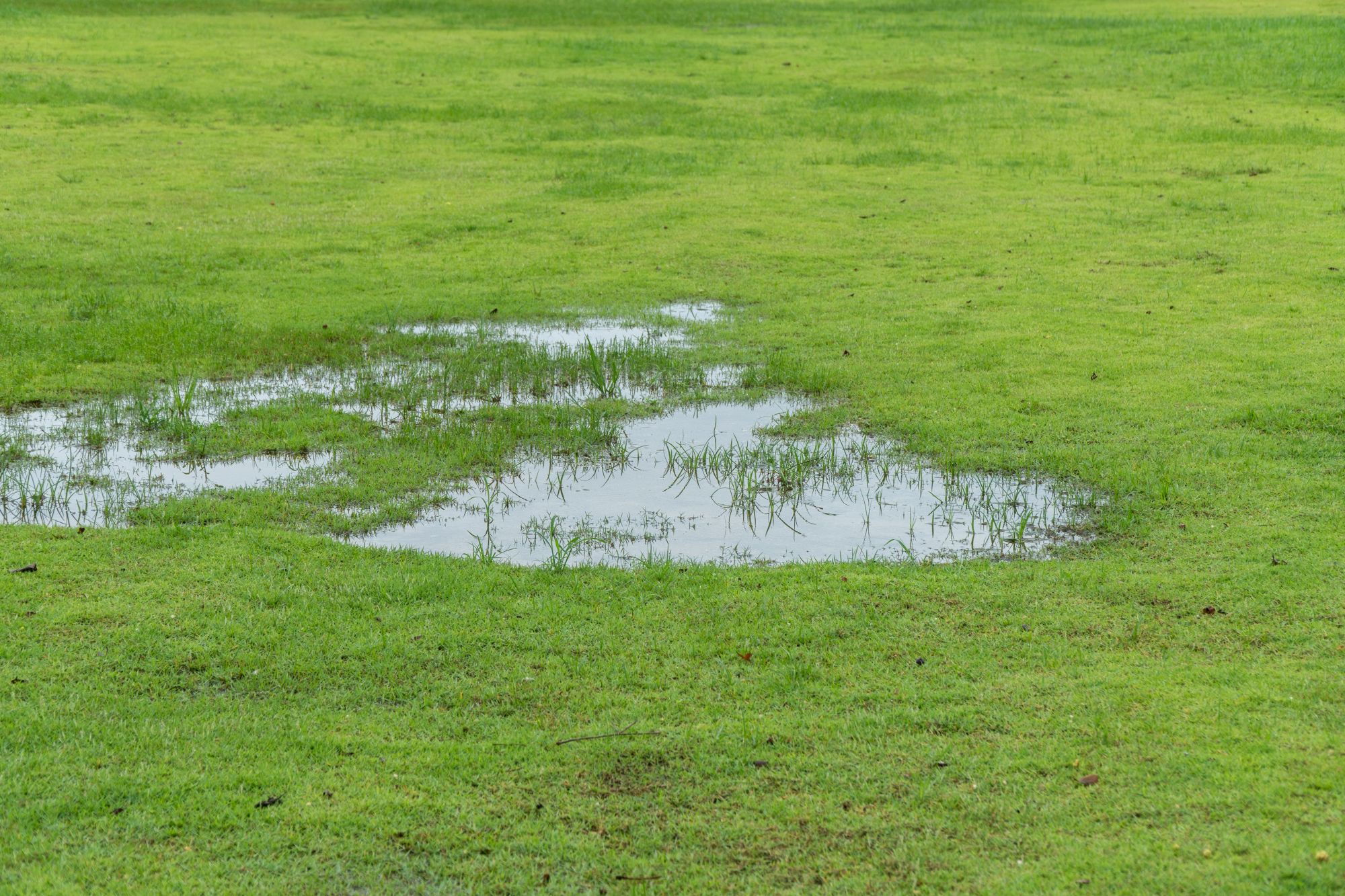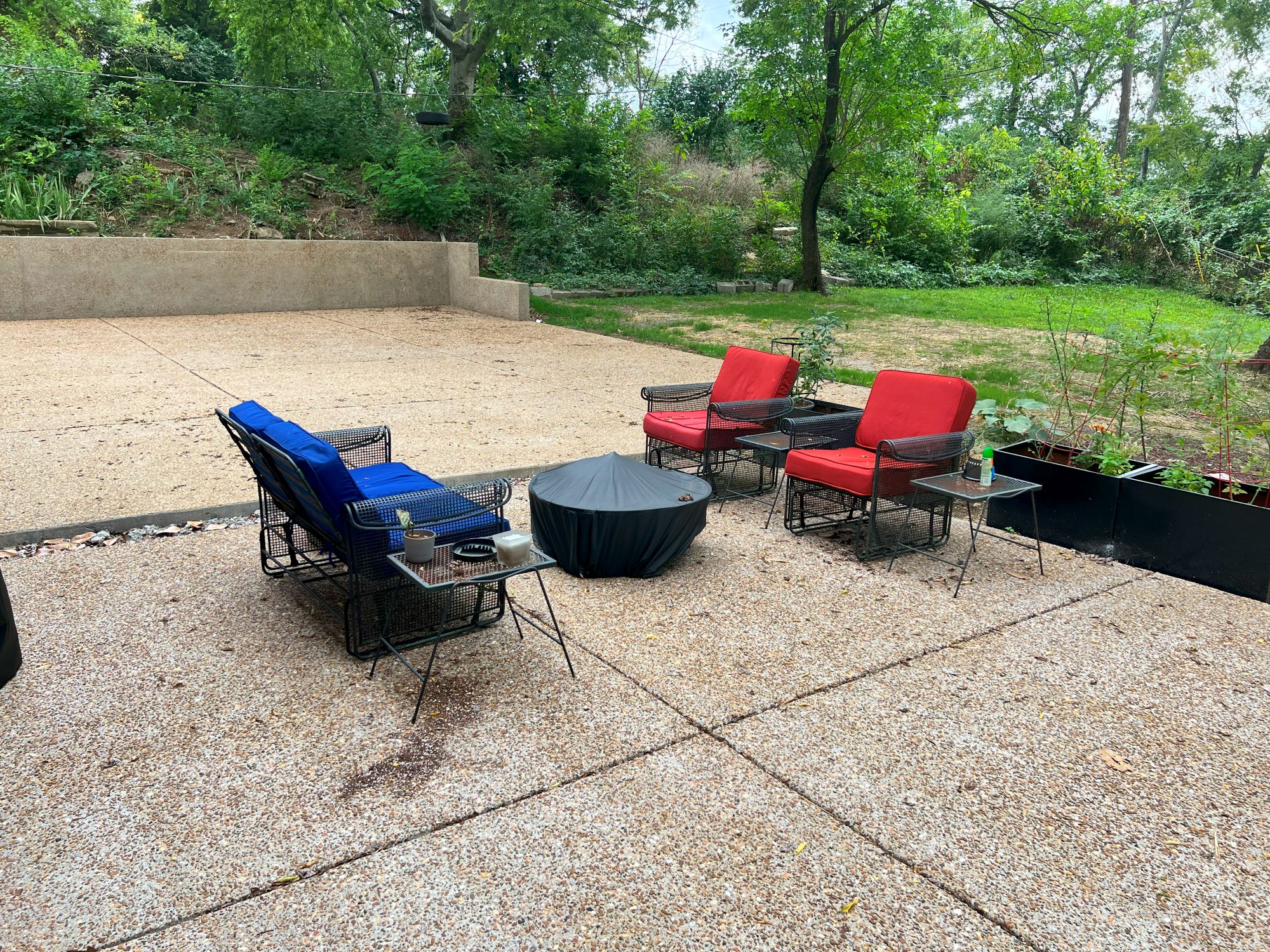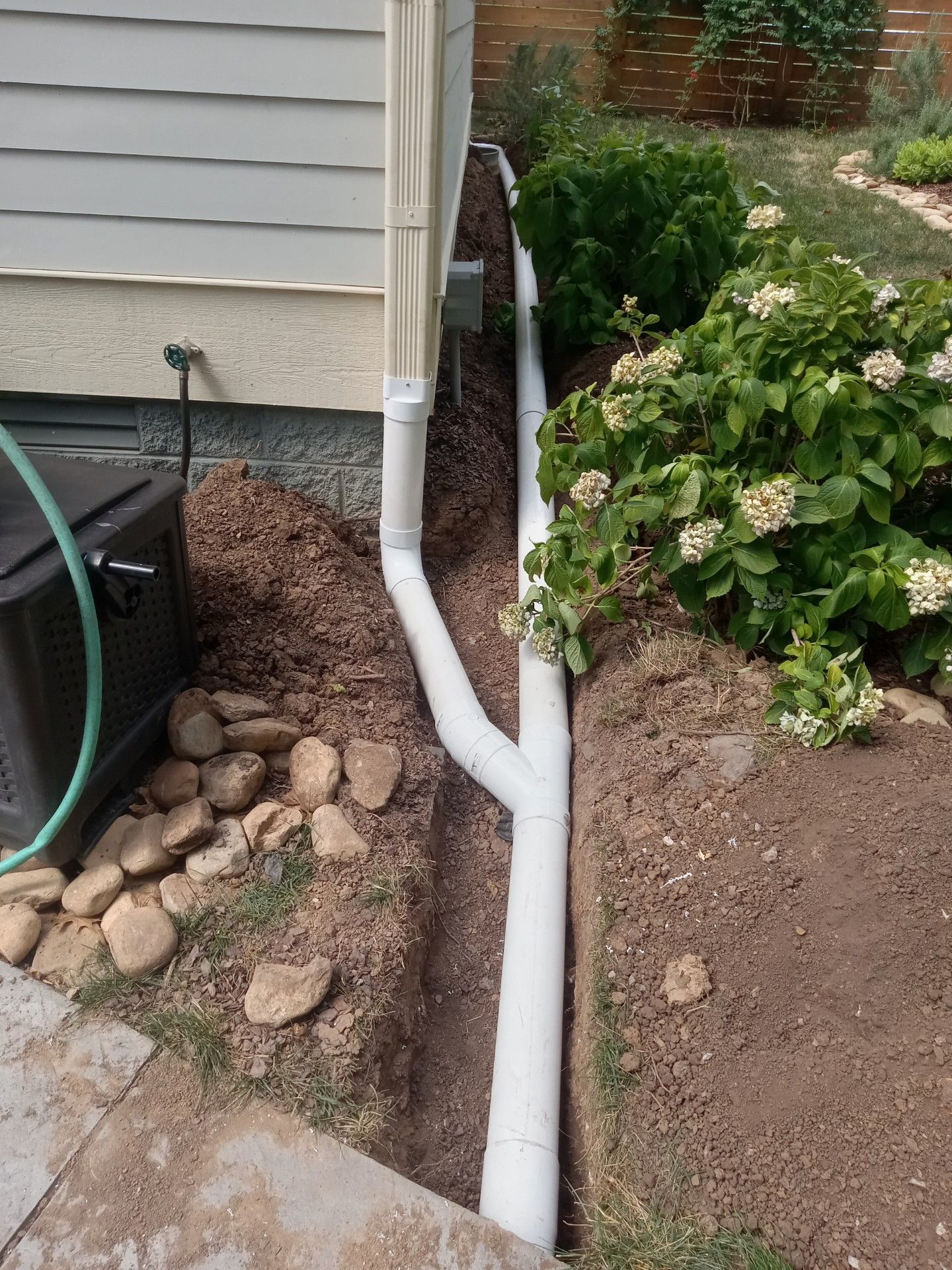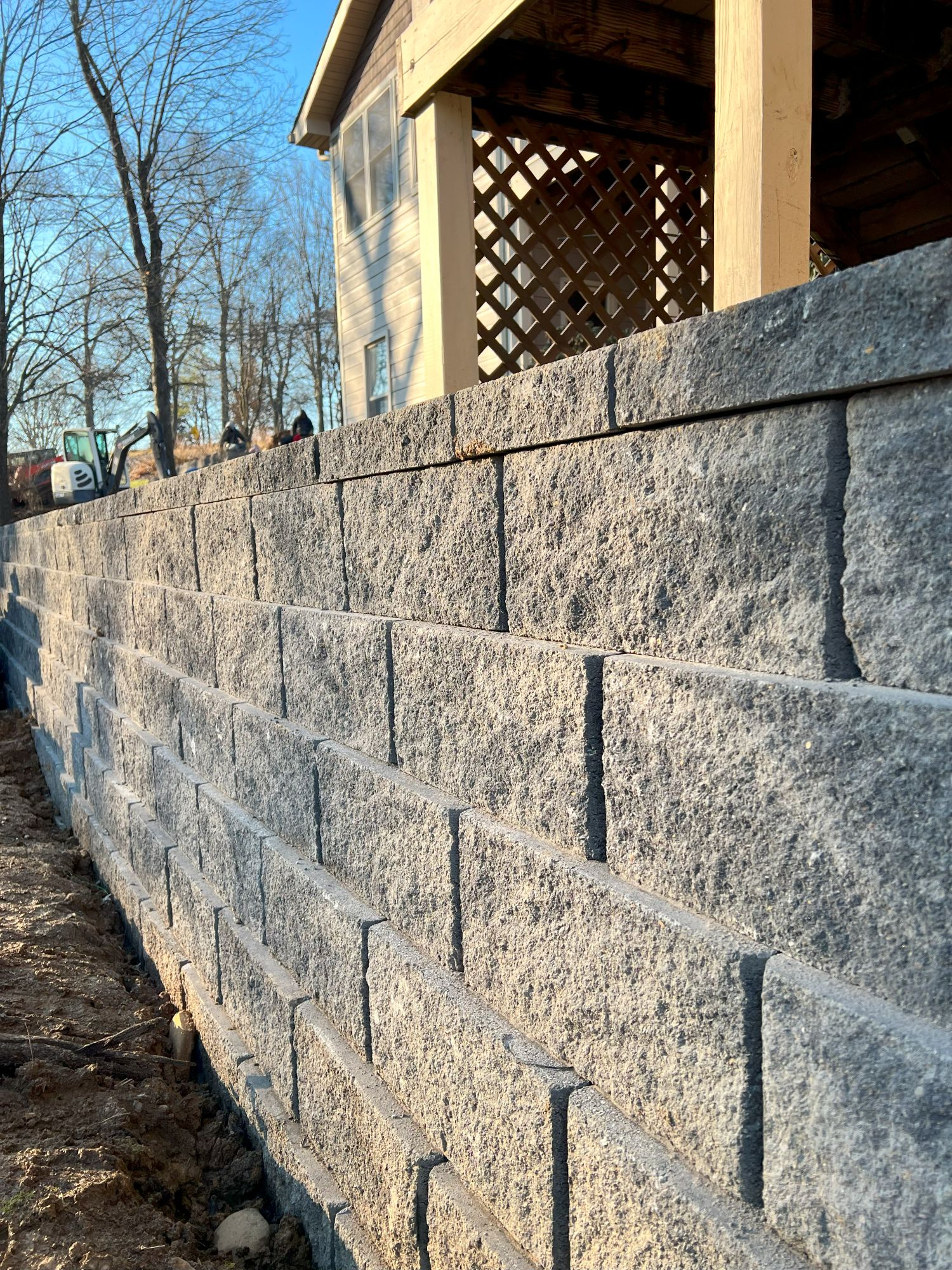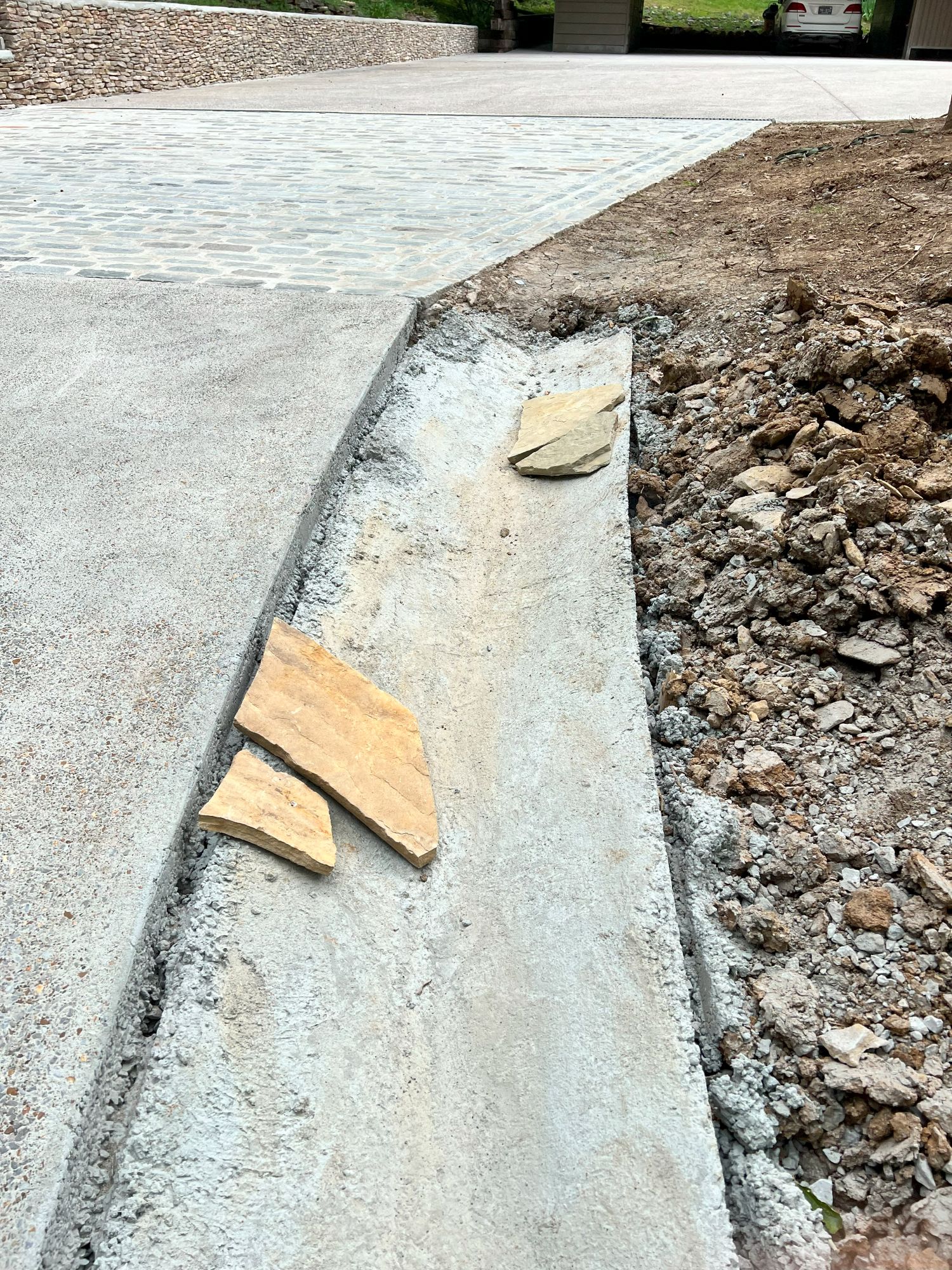Residential Stormwater Solutions in Nashville
Looking for stormwater solutions for your yard? If you’re a Nashville resident, then you know our city sees its fair share of storms. At an average of 49 inches of rain per year, Nashville actually gets almost 30% more rain than the U.S. average of 38 inches per year.
Thanks to all that rain, it’s not uncommon for homeowners to wake up to a flooded yard or street. While some flooding is unavoidable, there are steps you can take to help manage stormwater on your property. Keep reading for some residential stormwater solutions in Nashville!
What Is Stormwater Runoff and Why Is It a Problem?
When it rains, the water that hits your roof, driveway, and yard picks up all sorts of things like dirt, pollen, leaves, and even chemicals. This mixture of water and pollutants is called stormwater runoff. When stormwater runoff is not properly managed, it can cause a whole host of problems.
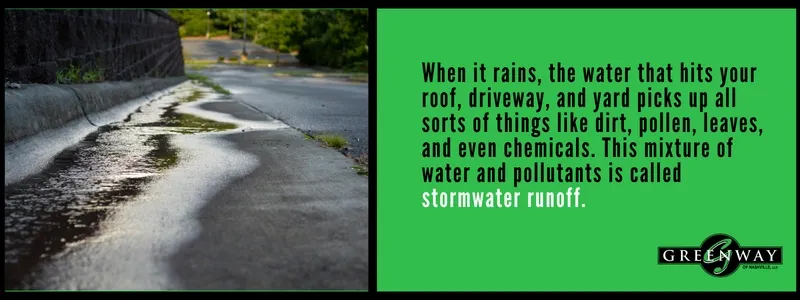
For example, all that water can lead to flooding in your basement or crawl space. This may result in the structural weakening of your house, as well as mold and mildew growth. Any excess water that doesn’t get into your home may cause puddles in your yard, keeping it soggy and making it a breeding ground for mosquitoes. Not to mention the muddy mess tracked into the house.
All of these problems can be costly to fix and cause a lot of headaches. However, it’s important to do your part to manage stormwater runoff. By taking some simple steps, you can help protect your home and community from the effects of this problem.
“Work with skilled Nashville hardscaping and outdoor construction professionals who understand your vision and respect your schedule. Contact us for a free quote!”
What Are the Best Stormwater Solutions for Nashville Residents?
Stormwater poses a significant issue for those of us who live in and around Nashville. Fortunately, there are plenty of stormwater solutions to consider that could reduce or eradicate the problem. Each of these solutions involves drainage installation that is possible for you to DIY. However, you may benefit from the help of a professional residential drainage contractor. That way, you can be confident the system is properly installed.
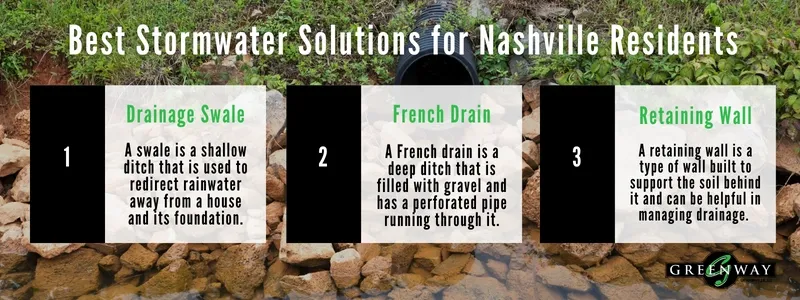
Drainage Swale
A swale is a shallow ditch that is used to redirect rainwater away from a house and its foundation. Its wide, shallow shape allows a swale to collect rainwater and let it slowly percolate into the ground. Depending on the stormwater situation in your yard, this can be much more effective than other types of drains that just encourage the water to flow quickly away to another point.
Another benefit to drainage swales is that they can be effective in preventing flooding and erosion. They are also relatively easy to create and maintain. In addition, aside from improving your yard’s functionality, swales can also add to its aesthetics. Once a swale is installed, you can plant grass or other plants along the sides to help hold the soil in place and turn it into a pleasant rain garden feature or you can simply leave it as a grassy lawn area. Overall, swales are a great low-maintenance option for improving drainage in your yard.
French Drain
French drains are a great way to redirect underground water away from your yard or home and keep your home dry. Basically, a French drain is a deep ditch that is filled with gravel and has a perforated pipe running through it. Groundwater drains into the gravel cavity and the pipe carries it away from the area.
The pipe helps to carry water away from your home and into a drainage system, body of water, or simply a place where its presence won’t cause any problems. French drains are especially useful in yards that have clay soil, which can hold onto water and cause flooding. By diverting the water away from your home, you can avoid these problems and keep your yard looking great.
Retaining Wall
A retaining wall is a type of wall built to support the soil behind it. They are usually made from concrete, stone, or timber, and can be used for both commercial and residential purposes. While retaining walls are often used to create level spaces in a yard, they can also be helpful in managing drainage.
When placed strategically, a retaining wall can help deflect runoff away from a foundation or redirect it to a more advantageous location. For this reason, retaining walls are often used in conjunction with a French drain or swale.
In addition, retaining walls can help to reduce erosion by holding back soil that would otherwise be subject to the erosive force of water. Whether you’re looking to add an eye-catching feature to your landscaping or trying to solve a drainage problem, a retaining wall may be the perfect solution.
Want Stormwater Solutions from a Nashville Residential Drainage Contractor?
Nashville’s stormwater runoff is a big problem, and that’s not going to change any time soon. Fortunately, there are many ways to protect your home and yard from excessive rain. Contact us today for help choosing the best stormwater solutions for your yard.
Our residential drainage contractors can provide expert advice on how to keep your property safe from water damage, and we can also install the right products to make sure your home stays dry during storms. Keep your family safe and your property in good condition by working with our team of experts.
